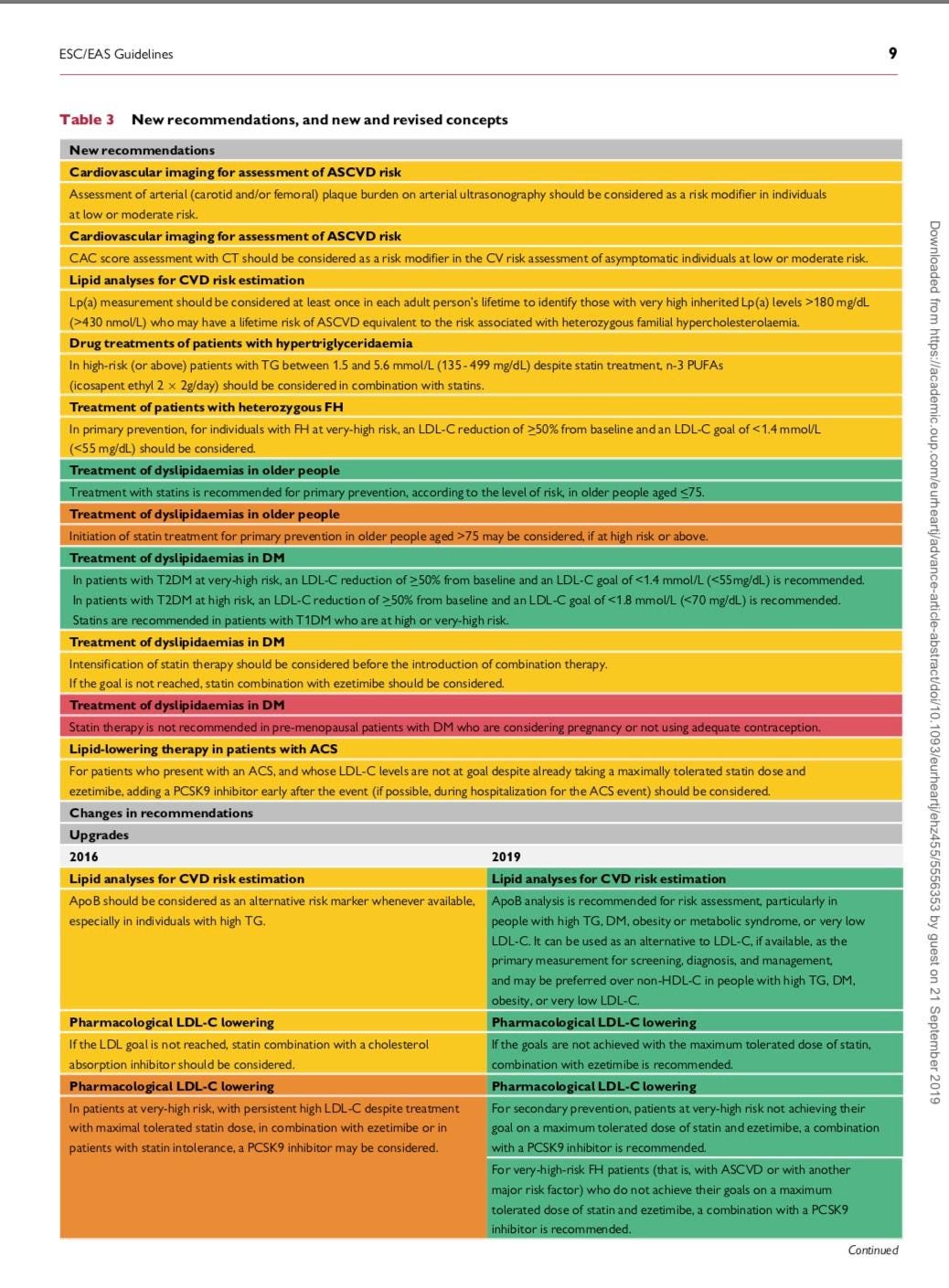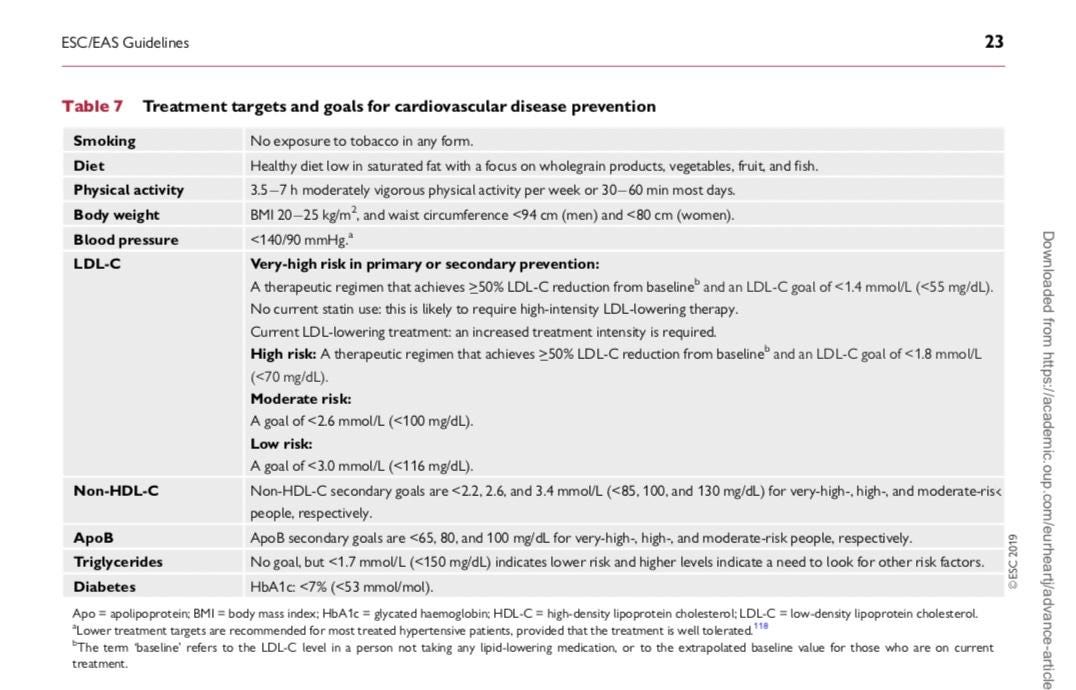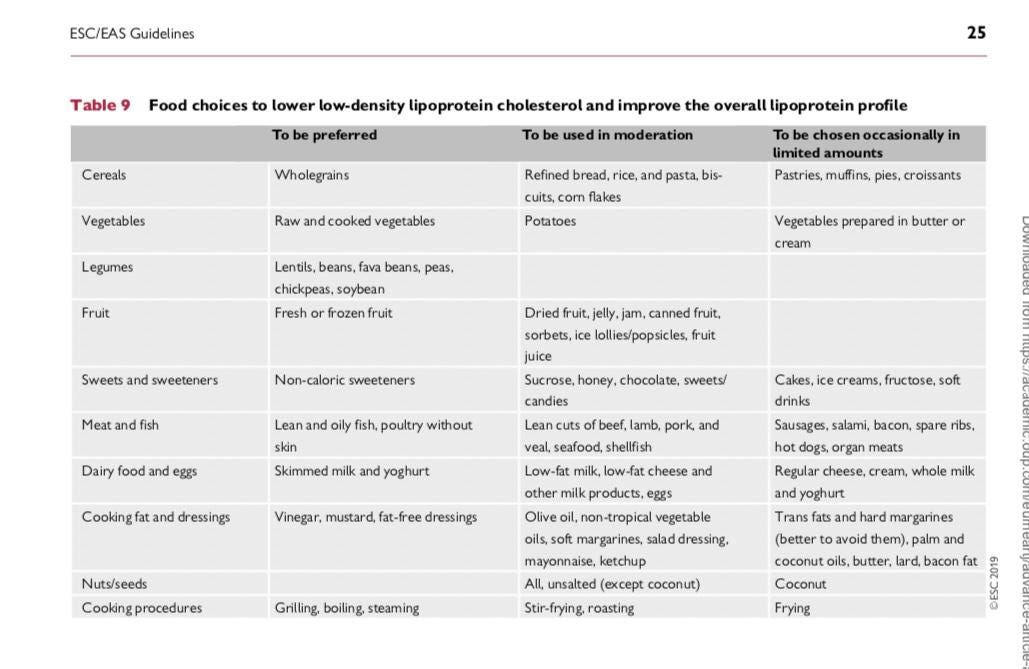It is spring 2022 and I am watching an recent university online lecture on cholesterol assessment. The most exciting pearl? Check Lipoprotein(a) cholesterol in everyone once! While this has been the norm at my center for a decade, there is a huge opportunity to teach more health care professionals to do the same.
This change took a long time but is due in large part to the 2019 guidelines from the European Society of Cardiology (ESC). The guideline on cholesterol disorders, known as dyslipidemia, was of particular note as it reinforced the concept that LDL cholesterol causes vascular disease and illness and urged levels of cholesterol control unique to clinical practice. What were these recommendations?
Overview of Significant New Changes: Color Coded
The ESC guidelines made it plain and simple with an overview that was color coded of the biggest changes from the prior guidelines. One important change was the recommendation to consider obtaining a Lp(a) measurement at least once in all adults to identify high risk persons.

The Role of Vascular Imaging to Determine Risk
Although suggested over a decade ago by the SHAPE society, the new ESC guidelines emphasized obtaining a coronary artery calcium CT scan and/or a carotid or femoral ultrasound study to determine risk status. At the Kahn Center we have offered CIMT ultrasound imaging with digital computer assessment since the day we opened 7 years ago. It is gratifying to see this excepted as the norm.

Goals of LDL-Cholesterol Reduction Based on Risk
The new guidelines had the lowest LDL goals ever recommended so far including LDL-cholesterols under 40 mg/dl for the highest risk patients.

Overall Treatment Goals Were Summarized

Foods to Lower LDL-Cholesterol

Overall, the 2019 ESC guidelines forge new ground with support for routine Lp(a) testing at least once in all individuals, the role of vascular imaging in risk assessment, and lower treatment targets to reduce residual risk. The guidelines are an exciting advance in the goal of prevention, early detection, and reversal of atherosclerosis. The fact that the lecture from U of Penn has included all of this in 2022 indicates progress (although it has been the norm for years at the progressive Kahn Center for Cardiac Longevity).







